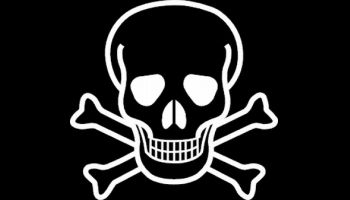Whistleblower Sticks Label Firm With Licence Payment

A label-making company has paid out nearly £25,000 after a whistleblower told the BSA of unlicensed software
The risks of businesses using unlicensed software have been highlighted once again after the Business Software Alliance (BSA) received a settlement figure for the unauthorised use of Microsoft software.
System Labelling Limited, a specialist label-making firm based near Chester in Flintshire, North Wales), has paid over £24,800, including settlement fees and the cost of purchasing software licenses, because it was found to be using unlicensed Microsoft Office software.
Whistleblower Reward
The case came to light after a whistleblower recommended that the business should be investigated by the BSA.
Speaking to eWEEK Europe UK, a BSA spokesman confirmed that the whistleblower did receive financial compensation for informing the authorities. It is not clear whether the whistleblower is employed by the company.
 According to the BSA spokesman, the whistleblower received approximately £1,000 for the tip off. The exact amount, according to the spokesman, is actualyl calculated as a percentage of the resulting fine for the company.
According to the BSA spokesman, the whistleblower received approximately £1,000 for the tip off. The exact amount, according to the spokesman, is actualyl calculated as a percentage of the resulting fine for the company.
The BSA actively encourages people to inform them of any suspected software piracy, albeit in a business or individual cases. People can make confidential reports at the BSA website.
“Using unlicensed software is a false economy, and as this case shows, can lead to more harm than good,” said Michala Wardell, Chair, BSA UK Committee. “Most businesses cannot afford unplanned financial costs like this which often far exceed the initial outlay of licensed software.”
“The financial penalties aside, using unlicensed software can also carry multiple business risks,” she added. “Companies may not have access to the same support services and patches as legal versions, for example, which can lead to downtime and exposure to viruses.”
BSA Claims
An IDC report for the BSA found that by reducing the 27 percent software piracy rate in the UK by 10 percentage points over four years, 13,011 high-tech jobs, £5.4bn in new economic activity and £1.5bn in new taxes could be created by 2013, with 87 percent of those benefits remaining in the local economy.
However, that report was met with widespread scepticism from within the ICT industry. “It’s disappointing, when we are keen to have a serious and informed debate on piracy, that the BSA are still trotting out this sort of transparent propaganda,” said Andrew Robinson, leader of the UK Pirate Party, at the time.
And the BSA has clashed with The Free Software Foundation, which in October last year accused it of sabotaging the EC’s support for open standards.
Despite this, this latest case highlights the potential financial risks of using unlicensed software, especially if a company has disgruntled staff or is making redundancies.
Last month OCB Media Ltd, a healthcare training supplies firm, was forced to pay more than £19,000, after it was found to be using unlicensed Microsoft and Adobe software by the BSA. The BSA has previously labelled Birmingham as a piracy hotspot.
European Action
The BSA actions comes as the European Parliament adopted in November a resolution approving the final draft of the controversial ACTA trade agreement, designed to counter intellectual property infringement.
The agreement requires nations to include border searches, injunctions and fines in their enforcement measures, as well as the seizure of equipment used in suspected infringement activities.
The treaty has been criticised for going too far, and also for the secretive way in which the text was negotiated, with publication of drafts beginning only near the end of the process. ACTA will be subject to one more vote in the European Parliament before it is passed.